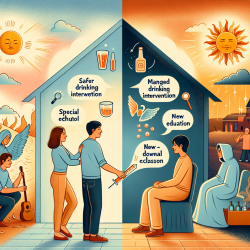The Transformative Power of Managed Alcohol Programs
As a practitioner working with individuals experiencing severe alcohol dependence and homelessness, it is crucial to explore innovative approaches that offer hope and tangible benefits. Managed Alcohol Programs (MAPs) represent a groundbreaking intervention that not only reduces the harms associated with alcohol use but also provides a pathway to stability and healing.
Understanding Managed Alcohol Programs
Managed Alcohol Programs are harm reduction initiatives that aim to address the complex challenges faced by individuals with severe alcohol dependence and homelessness. These programs provide a controlled environment where participants receive accommodation, health, and social support, alongside regulated access to beverage alcohol. This approach helps stabilize drinking patterns and reduces the need for non-beverage alcohol consumption.
The Impact of MAPs: A New Arena for Healing
Research conducted on MAPs across Canada has revealed significant positive outcomes for participants. Before joining a MAP, individuals often find themselves in a cycle of displacement, moving between streets, shelters, jails, and hospitals. This revolving door of abstinence-based environments often fails to meet their needs and exacerbates feelings of shame and guilt.
MAPs create a new arena that disrupts this cycle by offering a harm reduction world where sobriety is not a prerequisite for receiving support. Participants experience a safer space where they can reconnect with family, friends, and for Indigenous participants, their cultural traditions. The emphasis on respect, choice, and autonomy fosters a sense of dignity and belonging.
Implementing MAPs: Challenges and Opportunities
While MAPs have shown promise in reducing alcohol-related harms and enhancing social connections, they face ongoing challenges. These include a lack of understanding of alcohol harm reduction among external stakeholders and insecure program funding. Practitioners can play a vital role in advocating for MAPs by educating others about their benefits and supporting efforts to secure sustainable funding.
Encouraging Further Research
For practitioners seeking to enhance their skills and knowledge, engaging in further research on MAPs can provide valuable insights. Understanding the social and structural shifts that occur for participants pre- and post-MAP can inform the development of more effective interventions and policies. Practitioners are encouraged to explore the full research paper to gain a deeper understanding of the impacts of MAPs.
To read the original research paper, please follow this link: “There is a Place”: impacts of managed alcohol programs for people experiencing severe alcohol dependence and homelessness.










